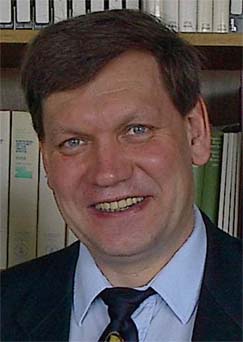NAAJ Paper
New article on human longevity studies published in a professional peer-reviewed journal -- North American Actuarial Journal
Greetings,
We are pleased to announce publication of a new research article on human longevity predictors, published in a professional peer-reviewed journal (to get the full text just click on the title below):
Gavrilova N.S., Gavrilov L.A.
Search for Predictors of Exceptional Human Longevity:
Using Computerized Genealogies and Internet Resources for Human Longevity Studies.
North American Actuarial Journal, 2007, 11(1): 49-67.
Earlier drafts of this study were presented and discussed at several professional meetings and received media coverage in the New York Times, Washington Post, Reuters, ABC News, MSNBC etc: http://longevity-science.org/Media-Coverage.html
The article will appear online shortly at the Society of Actuaries website, and at the University of Chicago library website
Home:
Longevity Science Blog
and
NAAJ Paper
Shorter weblink:
http://tinyurl.com/2fl2hp
Please post your comments below!:
Greetings,
We are pleased to announce publication of a new research article on human longevity predictors, published in a professional peer-reviewed journal (to get the full text just click on the title below):
Gavrilova N.S., Gavrilov L.A.
Search for Predictors of Exceptional Human Longevity:
Using Computerized Genealogies and Internet Resources for Human Longevity Studies.
North American Actuarial Journal, 2007, 11(1): 49-67.
Abstract
This paper explores new opportunities provided by the ongoing revolution in information technology, computer science and Internet expansion for studies of exceptional human longevity. To this aim, the detailed family data for 991 alleged centenarians born between 1875 and 1899 in the United States were extracted from publicly available computerized family histories of 75 million individuals available at Rootsweb site. To validate the age of the centenarians, these records were linked first to the Social Security Administration Death Master File records (for death date validation) and then to the records of the U.S. censuses for 1900, 1910 and 1920 (for birth date validation). The results of this cross-validation study demonstrated that computerized genealogies may serve as a useful starting point for developing a reliable family-linked scientific database on exceptional human longevity.
The resulting database on centenarians with validated ages was used in the study of the predictors of exceptional human longevity, including familial factors and early-life living conditions. The comparison of households where children (future centenarians) were raised (using data obtained through linkage of genealogies to early U.S. censuses) with control households drawn from the Integrated Public Use Microdata Series for the 1900 U.S. census suggests that a farm background (farm ownership by parents in particular) and child residence in the Western region of the United States may be predictive for subsequent survival to age 100. These findings are consistent with the hypothesis that lower burden of sickness during childhood (expressed as lower child mortality in families of farm owners and families living in the West) may have far-reaching consequences for survival to extreme old ages.
Analysis of familial factors suggests that there may be a link between exceptional longevity and a person's birth order. It was found that first-born daughters are three times more likely to survive to age 100, compared to later-born daughters of higher birth orders (7+). First-born sons are twice more likely to become centenarians compared to sons having birth order between four and six. Further within-family comparison of centenarians with their siblings found that the protective effect of being first-born is driven mostly by the young maternal age at person's birth (being born to a mother younger than 25 years). Being born to a young mother is an important within-family predictor of human longevity and even at age 75 it is still important to be born to young mother to survive to 100 years.
Earlier drafts of this study were presented and discussed at several professional meetings and received media coverage in the New York Times, Washington Post, Reuters, ABC News, MSNBC etc: http://longevity-science.org/Media-Coverage.html
The article will appear online shortly at the Society of Actuaries website, and at the University of Chicago library website
Home:
Longevity Science Blog
and
NAAJ Paper
Shorter weblink:
http://tinyurl.com/2fl2hp
Please post your comments below!:
Labels: actuarial studies, birth order, Centenarians, genealogies, human longevity, longevity predictors, longevity studies, mother's age



3 Comments:
See this comment:
"...the Gavrilovs have come up with some novel and striking findings."
So if I understand this correctly, a 75 year old who was born to a mother who was younger than 25 years old at the time of birth is approximately twice as likely to become 100 years old as a 75 years old person who was born to a mother who was older than 25 years old?
This is a fascinating look into how data analysis can be used to study human longevity.
Post a Comment
<< Home